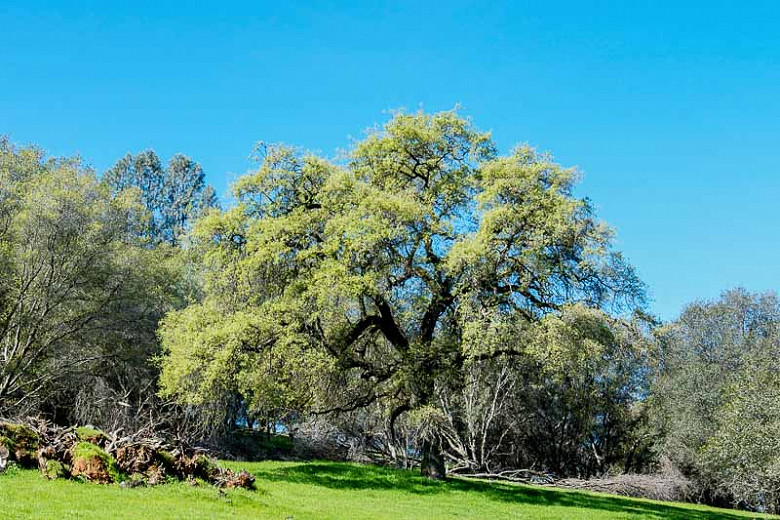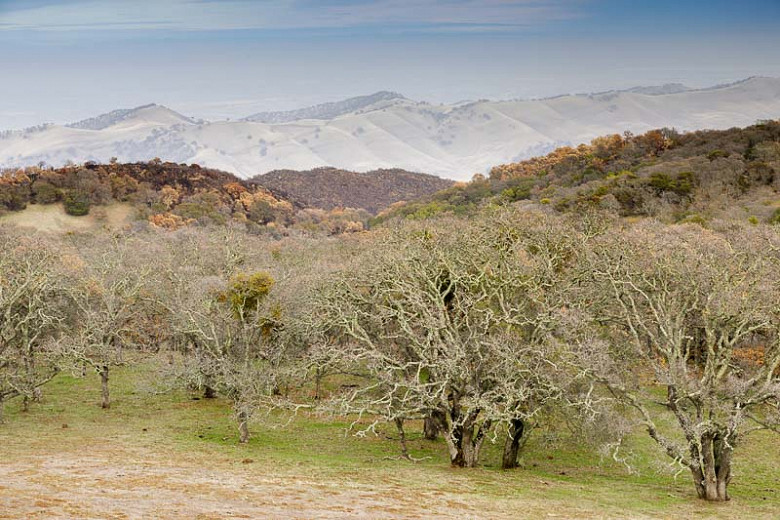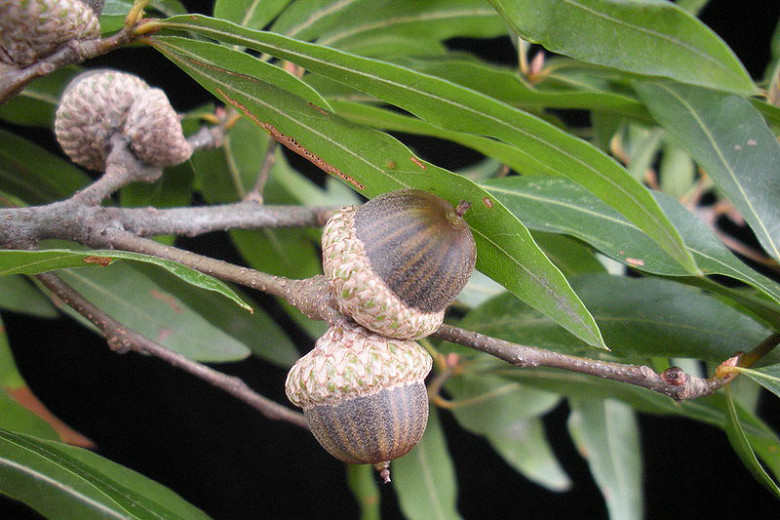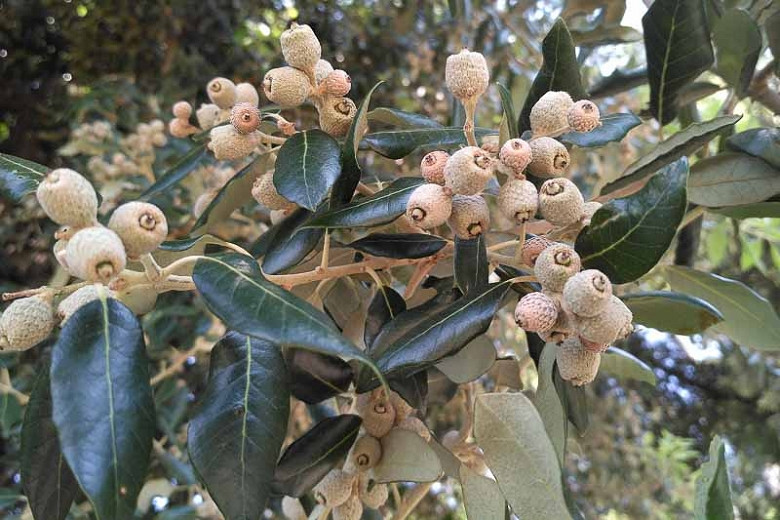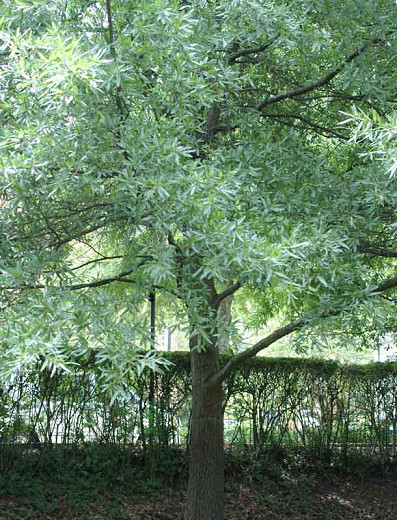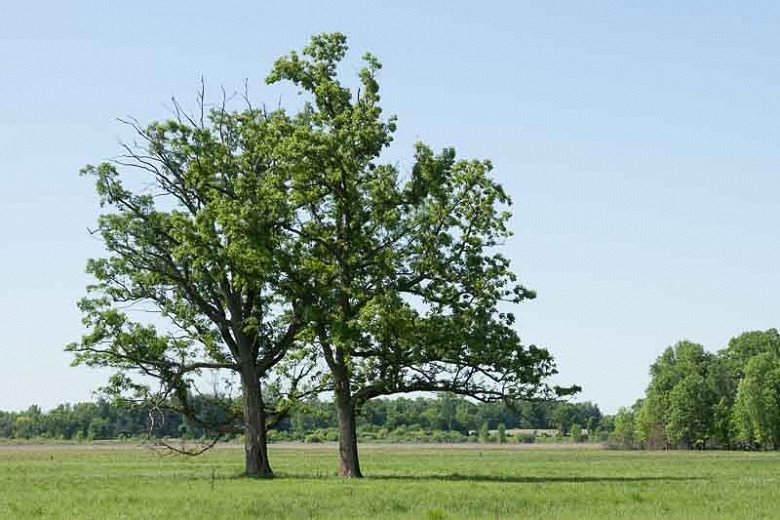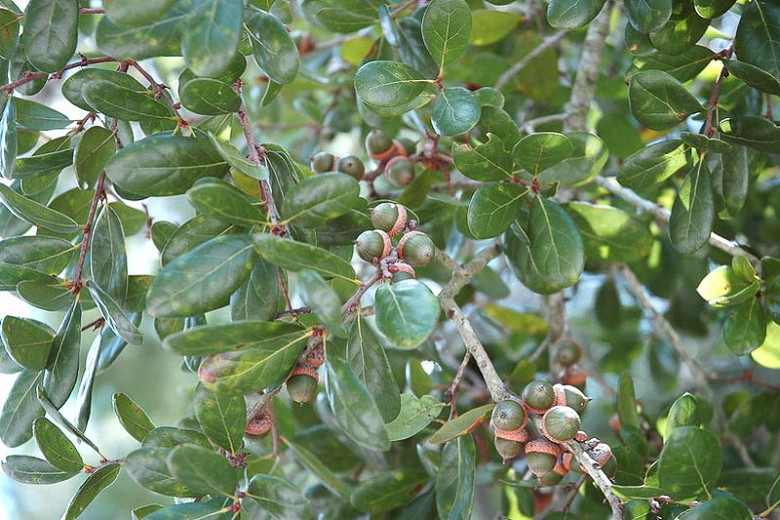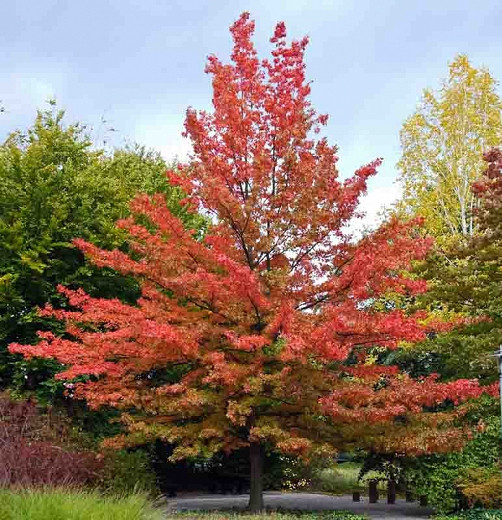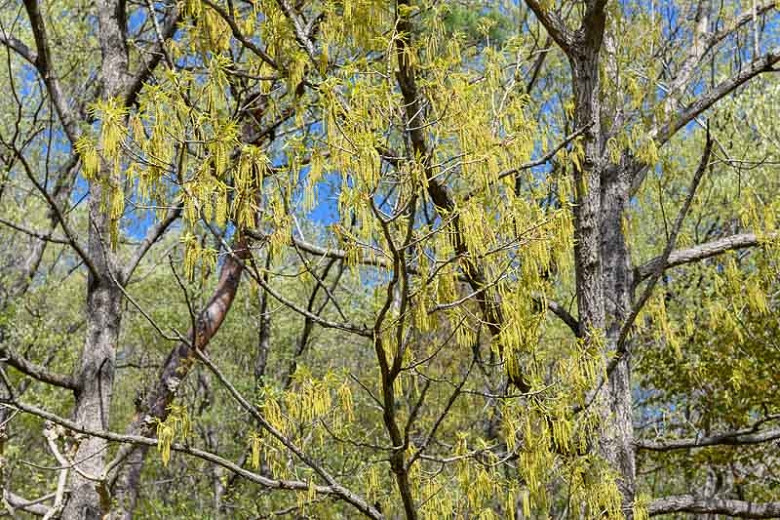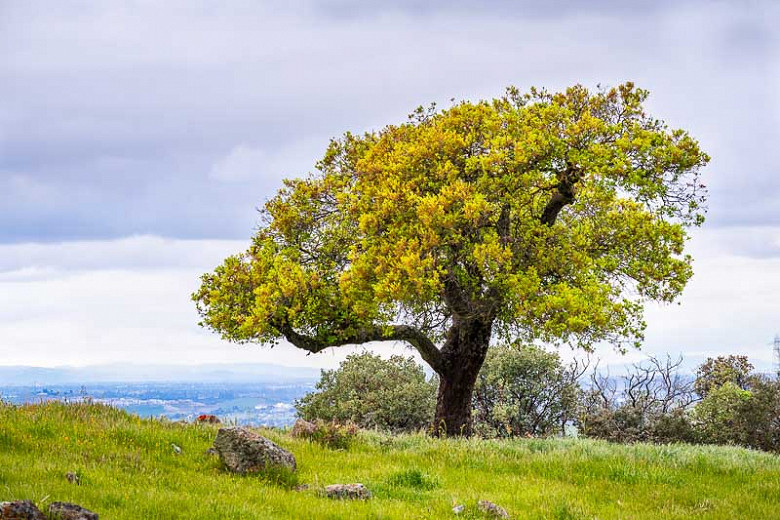Quercus douglasii (Blue Oak)
Quercus douglasii (Blue Oak) is a medium-sized deciduous tree with a short trunk and a broad, rounded crown. The stout crooked branches are clothed with oval, shallowly lobed, bluish-green leaves, up to 4 in. long (10 cm). The foliage turns attractive pastel shades of pink, orange and yellow in the fall. Inconspicuous catkins appear in spring as the leaves emerge. The trunk and gnarled branches, with their light gray, shallowly checked bark provide architectural elegance and winter interest. The egg-shaped acorns, 1 in. long (2.5 cm), are a valuable source of food for small mammals and birds. Slow-growing, Blue Oak is fall- and drought-deciduous. It may retain its foliage year-round on moist sites or show a flush of new leaves after heavy rains. Native to California, Blue Oak is very common within its narrow range, dominating almost half of California's oak woodlands. It occurs in valleys and on low slopes of the Coast Ranges and on low foothills of the Sierra Nevada. Great for bank stabilization and dry, rocky slopes, Blue Oak is highly drought tolerant and is able to grow in the poorest soils.
- Grows up to 30-50 ft. tall (9-15 m) and 40-70 ft. wide (12-21 m).
- Performs best in full sun to part shade in acidic, well-drained soils. Tolerant of a variety of soils as long as adequate drainage is provided. Requires little summer water (once a month). Drought tolerant once established. It is moderately resistant to salt spray.
- Perfect as a specimen plant.
- Keep an eye out for crown rot, mistletoe, armillaria, brown Rot, caterpillars, insect galls, California oak moth, gall wasp. Deer resistant.
- Prune young trees for desired shape.
- Propagate by seed. Fresh seeds sow in fall outdoors or stratify to hold for spring sowing.
- Toxic to horses.
- Native to Central and Southern California.
Requirements
| Hardiness | 6 – 9 |
|---|---|
| Climate Zones | 3, 3A, 3B, 4, 5, 6, 7, 8, 9, 10, 11, 14, 15, 16, 17, 18, 19, 20, 21, 22, 23, 24 |
| Plant Type | Trees |
| Plant Family | Quercus – Oaks |
| Exposure | Full Sun, Partial Sun |
| Season of Interest | Spring (Early,Mid,Late)Summer (Early,Mid,Late)FallWinter |
| Height | 30' – 50' (9m – 15m) |
| Spread | 40' – 70' (12m – 21m) |
| Water Needs | Low |
| Maintenance | Low |
| Soil Type | Clay, Loam, Sand |
| Soil pH | Acid, Neutral |
| Soil Drainage | Well-Drained |
| Characteristics | Showy |
| Native Plants | United States, California |
| Tolerance | Clay Soil, Deer, Drought, Dry Soil, Rocky Soil, Salt |
| Attracts | Birds, Butterflies |
| Garden Uses | Banks and Slopes |
| Garden Styles | Coastal Garden, Prairie and Meadow |
